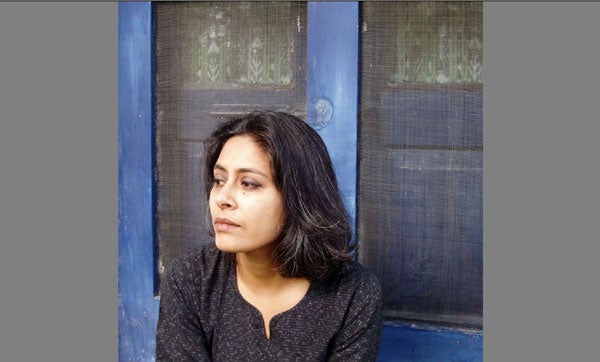The Folded Earth, By Anuradha Roy

Your support helps us to tell the story
From reproductive rights to climate change to Big Tech, The Independent is on the ground when the story is developing. Whether it's investigating the financials of Elon Musk's pro-Trump PAC or producing our latest documentary, 'The A Word', which shines a light on the American women fighting for reproductive rights, we know how important it is to parse out the facts from the messaging.
At such a critical moment in US history, we need reporters on the ground. Your donation allows us to keep sending journalists to speak to both sides of the story.
The Independent is trusted by Americans across the entire political spectrum. And unlike many other quality news outlets, we choose not to lock Americans out of our reporting and analysis with paywalls. We believe quality journalism should be available to everyone, paid for by those who can afford it.
Your support makes all the difference.This is the kind of novel about India that cultivated people in the West, particularly Britain, love to read. It is set in a refreshingly recognisable – Tolkien-like map embedded – but not overtly familiar part of India. It has hill stations and mountain people, once so loved by Kipling and co; it has beautiful echoes of the Raj and leftover princelings; it has pickle factories and Jim Corbett; it is even haunted by the ghosts of the Mountbattens and the love letters that purportedly passed between Edwina and Nehru, surely a matter of perennial fascination only to complementary classes in India and England.
But it is an index of Anuradha Roy's undoubted talent that The Folded Earth manages to rise from nostalgia to nuance. Roy manages to make a fresh and appetising dish from the usual ingredients.
The Folded Earth is narrated by Maya, a young Hindu woman disinherited by her pickle-industrialist father for marrying a Christian. When her husband dies on one of his mountaineering expeditions, Maya abandons the Deccan to move to Ranikhet, a hill station in the Himalayas. At first teaching ineptly in a Christian school and then running their pickle factory with success, Maya gets to know a number of local citizens. Of these, the eccentric old gin-sipping aristocrat, Diwan Sahib, and Charu, a semi-literate cowherd girl, are the main characters.
Charu meets a young cook, and the two fall in love. When the man goes back to Delhi with his employers, Maya is the person Charu comes to in order to get his illicit letters read. Maya becomes involved in these young people's blossoming love. When Diwan Sahib's ambitious and fascinating nephew, Veer, sets up his trekking company on the estate, Maya has to cope, once again, with her own loss and longings. But elections are around the corner. A Hindu nationalist candidate is about to muddy the waters – or, more precisely, singe the clean mountain air – of Ranikhet. Maya's Christian school and two of her half-Indian ex-pupils are obvious scapegoats.
Roy's talent lies in her ability to infuse hard bits of social and political reality into a narrative that would otherwise have assumed the soft tinctures of light reading. It also lies in her ability to create memorable characters – ranging from major ones, like Maya or the Diwan Sahab, to minor ones, like Charu's simple uncle and local bureaucrats. She employs telling incidents to further the main narrative, such as the cars of party-workers forcibly parked in the school campus during elections.
This is a worthy successor to Anuradha Roy's first novel, An Atlas of Impossible Longing. Her narrative is poised and her language precise and poetic, without being flamboyant. Despite my distaste for novels imbued with Raj nostalgia, I was captivated by The Folded Earth and swept into its narrative. The novel does not take risks with style, structure or theme, but then very few novels do. However, it is extremely good at what it sets out to do: tell a story about love and hate, continuity and change, loss and grief in a convincing and memorable setting.
Tabish Khair's novel 'The Thing About Thugs' has been shortlisted for the Man Asian Literary Prize
Join our commenting forum
Join thought-provoking conversations, follow other Independent readers and see their replies
Comments